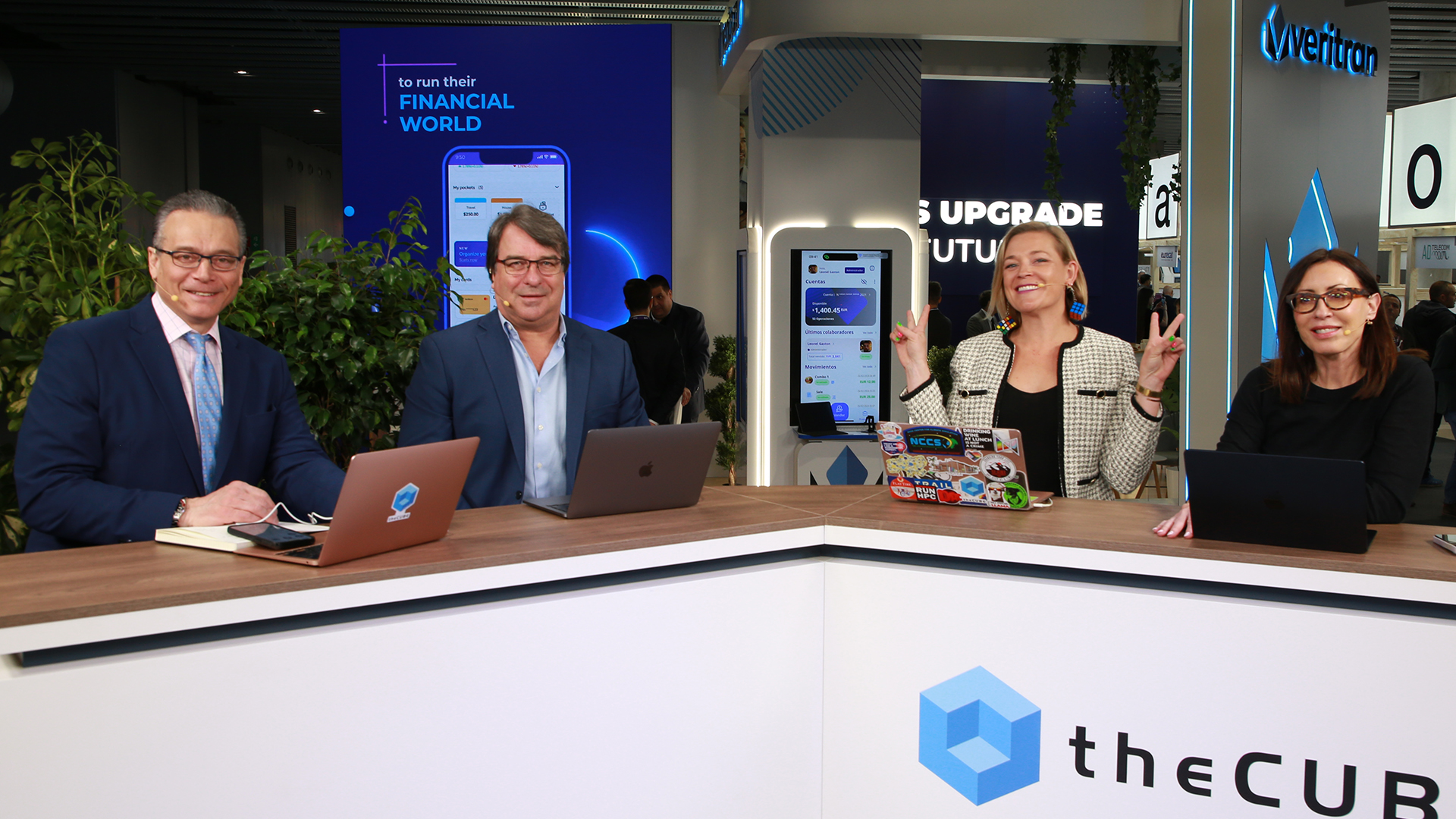 AI
AI
 AI
AI
 AI
AI
It’s clear that the telecom industry stands at a pivotal juncture, with artificial intelligence, 5G and collaboration at the forefront of its evolution.
With the potential of AI to revolutionize business models and the emphasis on collaborative efforts to navigate the challenges of monetization and technological integration, the future of telecom appears both challenging and promising. Industry analysis during theCUBE’s opening coverage of this week’s MWC 2024 event in Barcelona shed light on the complexities and opportunities that lie ahead.
“One of the big questions this time around is: Can the telco operators actually monetize 5G in a way that they weren’t able to with the last wave in mobile?” said Dave Vellante (pictured, left), co-founder and chief analyst of theCUBE Research, during theCUBE’s opening-day analysis. “They monetized through connectivity, but everybody else sort of bogarted the network.”
John Furrier (second from left), theCUBE Research co-founder and executive analyst, also pointed to AI as one of the compelling industry narratives being discussed at the event.
“The big story here, from my standpoint, is the wakeup call that AI has given the industry,” he said. “You look at all the news and announcements, Open Gateway, collaboration, kind of a unification theme around, we’ve got to get our act together.”
Vellante and Furrier, along with Shelly Kramer (right), managing director and principal analyst, and Savannah Peterson (second from right), host of theCUBE, discussed how AI and strategic collaboration offer solutions to the long-standing monetization challenges faced by telecom operators. They also highlighted the industry’s shift toward more sustainable and innovative business models in the era of 5G connectivity. (* Disclosure below.)
At the core of this year’s MWC discussions lies a pressing conundrum: Can telecom operators monetize 5G effectively, transcending the hurdles that marred previous generations? With network traffic skyrocketing, primarily driven by over-the-top vendors, the disparity between capital expenditure and revenue growth becomes stark.
“Telcos are all about connectivity … traffic is going through the roof — revenues are not, but capex is,” Vellante said, encapsulating the sector’s dilemma.
This scenario paves the way for AI as not just an enhancer of business models and technological capabilities, but as a crucial lever for addressing the monetization challenge head-on. By leveraging AI’s analytical and predictive capabilities, telecom companies can better understand consumer behavior, personalize services and streamline network management, thereby turning the monetization challenge into an opportunity for growth and innovation.
“It’s been a challenge for telcos to figure out how we can help CSPs, how we can monetize,” Kramer said. “Now it’s AI, but the reality of it is AI does present some opportunities; it does present some challenges. They’ve got to figure it out. I think vendors who are able to work with CSPs and help them figure this out, that’s the path forward.”
Beyond AI, a recurring theme at this week’s MWC event will be the importance of collaboration. As the telecom industry grapples with rapid advancements and the need for sustainable business models, theCUBE Research analysts stressed the importance of unified efforts rather than isolated pursuits.
“We’re entering an era, when in terms to accelerate, it’s not going to be everyone reinventing the wheel,” Peterson said. “There’s going to be a ton of collaboration, not just in terms of full-stack collaboration, but across multiple different teams pulling into APIs.”
This collaborative spirit is particularly evident in the embrace of cloud computing and open-source initiatives, as industry leaders recognize the value of sharing resources, knowledge and technologies to accelerate development and deployment of new services. The integration of cloud computing with telecom infrastructure not only enhances scalability and flexibility, but also fosters a more inclusive ecosystem where open-source projects drive innovation, ensuring a more robust and adaptable future for the telecom industry.
“The big collaboration is cloud … cloud is going to dominate this business,” Vellante said. “The cloud operating model is a big wave that’s washing over the telco industry, and the market is enormous.”
The analysts’ discussion of GSMA’s Open Gateway project — a framework of common network APIs designed to provide universal access to operator networks for developers — underscores this point. It illustrates the telecom sector’s move toward openness and shared innovation to foster growth and adapt to new technological paradigms.
“This whole initiative is about supporting CSPs and, you know, stronger, better together,” Kramer said. “I think this is a perfect time to be talking about that. I think this initiative will help a lot.”
Here’s the complete video interview, part of SiliconANGLE’s and theCUBE Research’s coverage of MWC Barcelona:
(* Disclosure: TheCUBE is a paid media partner for the MWC Barcelona event. No sponsors have editorial control over content on theCUBE or SiliconANGLE.)
Support our mission to keep content open and free by engaging with theCUBE community. Join theCUBE’s Alumni Trust Network, where technology leaders connect, share intelligence and create opportunities.
Founded by tech visionaries John Furrier and Dave Vellante, SiliconANGLE Media has built a dynamic ecosystem of industry-leading digital media brands that reach 15+ million elite tech professionals. Our new proprietary theCUBE AI Video Cloud is breaking ground in audience interaction, leveraging theCUBEai.com neural network to help technology companies make data-driven decisions and stay at the forefront of industry conversations.